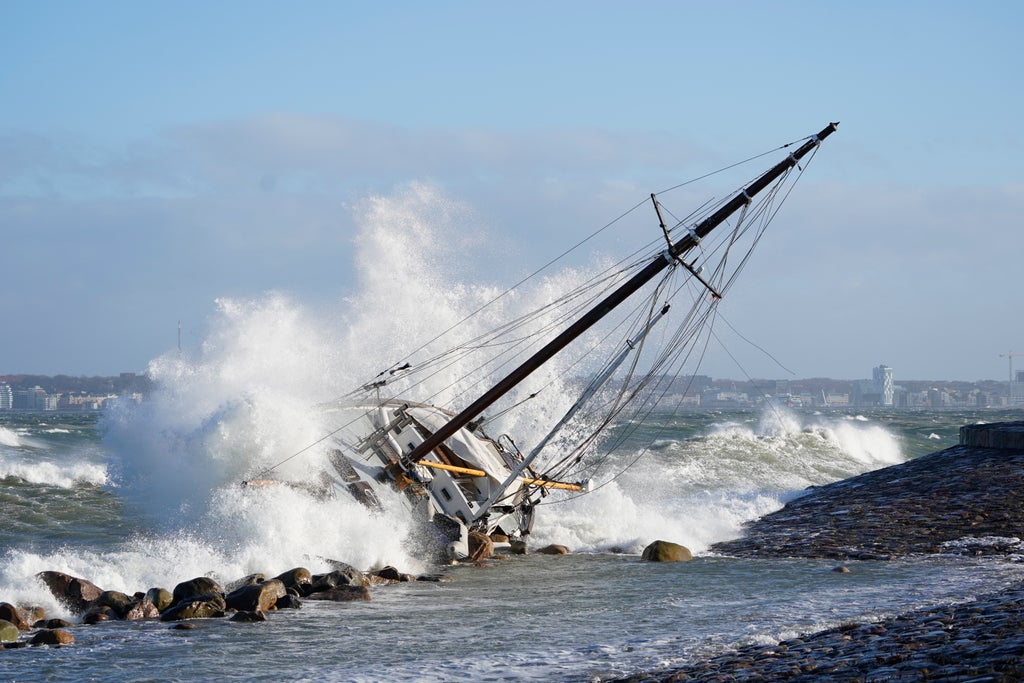
A powerful winter storm swept through northern Europe over the weekend, killing at least four people, destroying houses and cars, closing bridges and causing flooding and halting transport while leaving thousands of households without electricity.
Storm Malik was advancing in the Nordic region on Sunday, bringing strong gusts of wind, and extensive rain and snowfall in Denmark, Finland, Norway and Sweden
Malik reached the Nordic region and northern Germany late Saturday after moving in from Britain where it caused havoc with material damage and transport chaos, hitting Scotland particularly bad.
In Scotland, a boy and a 60-year-old woman were killed Saturday by falling trees as strong winds battered northern parts of Britain.
Wind gusts of more than 100 mph (160 kph) have been reported in parts of Scotland, causing widespread disruption to transport and power cuts to tens of thousands of homes.
Scottish leader Nicola Sturgeon warned that another storm due to hit the region on Sunday may be “more severe for parts of Scotland” than anticipated.
In Denmark, excessively strong winds with heavy rain caused the temporary closure of several bridges on Saturday including the key Oeresund road and rail bridge connecting Copenhagen and the Swedish city of Malmo.
Danish media reported that a 78-year-old woman died from severe injuries after falling in strong winds. In neighboring Germany, local media reported that a man was killed on Saturday after being hit by a billboard that was loosened by the storm.
Flooding in many parts of Denmark caused substantial material damage. Several traffic crashes caused by falling trees and flying debris were reported to police.
Southern parts of Sweden were badly hit, too, and thousands of households were without electricity by Sunday afternoon. Ferries to the Baltic Sea island of Gotland were canceled because of strong winds.
Severe damage to houses, cars and boats, among other things, were reported in Norway while heavy snowfall throughout Finland caused road crashes and disrupted bus and train traffic in parts of the country.







